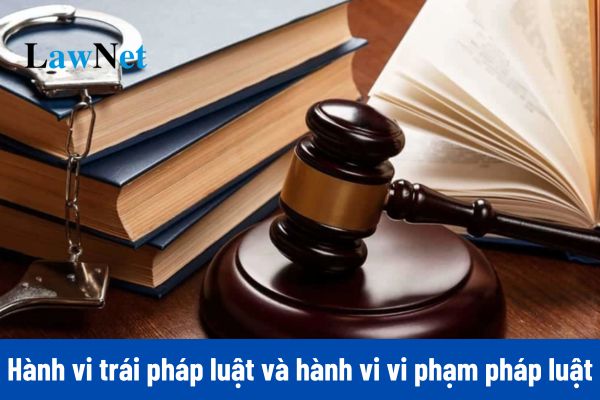Is every unlawful act a violation of the law in Vietnam?
Is every unlawful act a violation of the law in Vietnam?
The above statement is an incorrect statement. A violation of law is an unlawful act, but not every unlawful act is necessarily a violation of law.
For an act to be considered a violation of law, it must satisfy 4 constituent elements: objective, subjective aspect, subject, and object. If an act is performed due to objective conditions and circumstances where the subject cannot be aware and therefore cannot choose behavior as required by law, it cannot be considered a fault or a violation of law.
Moreover, unlawful acts committed by the mentally ill, or children (under the age specified by law) are not considered violations of law because they lack the capacity to control their behavior.
For example, according to Clause 1, Article 173 of the Criminal Code 2015 (amended by Clause 34, Article 1 of the Law Amending the Criminal Code 2017):
Crime of theft
1. Anyone who steals property valued between 2,000,000 VND and less than 50,000,000 VND or less than 2,000,000 VND but under one of the following circumstances shall be subject to non-custodial reform up to 03 years or imprisonment from 06 months to 03 years:
a) Has been administratively sanctioned for appropriation acts but continues to violate;
b) Has been convicted of this crime or one of the crimes specified in Articles 168, 169, 170, 171, 172, 174, 175, and 290 of this Code, and the conviction has not been expunged but continues to commit;
c) Causes adverse effects on security, order, and social safety;
d) The property is the main livelihood of the victim and their family;
dd) The property is an artifact or relic.
...
Additionally, according to Clause 1, Article 12 of the Criminal Code 2015:
Age of criminal responsibility
1. Persons aged 16 and above are fully criminally responsible for all crimes, except where this Code provides otherwise.
...
Thus, the act of theft is a criminally unlawful act; however, not all theft cases are criminally prosecuted, depending on whether the elements of the crime are satisfied.

Is every unlawful act a violation of the law in Vietnam? (Image from the Internet)
Do students in Vietnam have a responsibility to learn about the law?
According to Article 2 of the Law on Legal Dissemination and Education 2012 concerning the right to information about the law and the responsibility to learn about the law:
Right to legal information and responsibility to learn and study the law of citizens
1. Citizens have the right to legal information and are responsible for actively learning and studying the law.
2. The State ensures and facilitates the implementation of the right to legal information.
Thus, according to the above regulations, students have the right to legal information and the responsibility to actively learn and study the law.
What are principles of legal dissemination and education in Vietnam?
According to Article 5 of the Law on Legal Dissemination and Education 2012, the following 05 principles of legal dissemination and education are specified:
(1) Accurate, complete, clear, understandable, and practical.
(2) Timely, regular, with focus and key points.
(3) Diverse forms of legal dissemination and education, suitable to the needs, age, and level of the audience and the good traditions and customs of the nation.
(4) Associated with law enforcement, socio-economic development tasks, ensuring national defense, and national security, as well as the daily life of the people.
(5) Close coordination between agencies, organizations, families, and society.
Which acts are strictly prohibited by the State in the dissemination and education of the law in Vietnam?
According to Article 9 of the Law on Legal Dissemination and Education 2012, the following acts are prohibited by the state in legal dissemination and education:
- Misrepresentation, criticizing the legal content disseminated; not providing information or materials as prescribed by law; providing false or unlawful information or materials contrary to social morality and the good traditions of the nation.
- Exploiting legal dissemination and education to distort the Communist Party's policies and the laws of the State; propagating hostile policies, causing division in national unity; infringing on the interests of the State and the lawful rights and interests of agencies, organizations, and individuals.
- Obstructing the exercise of the right to information, learning, and studying the law of citizens and the activities of legal dissemination and education by agencies, organizations, and individuals.
- Taking advantage of the right to legal information and learning to disturb the normal activities of agencies, organizations, and individuals, causing social disorder and safety.

